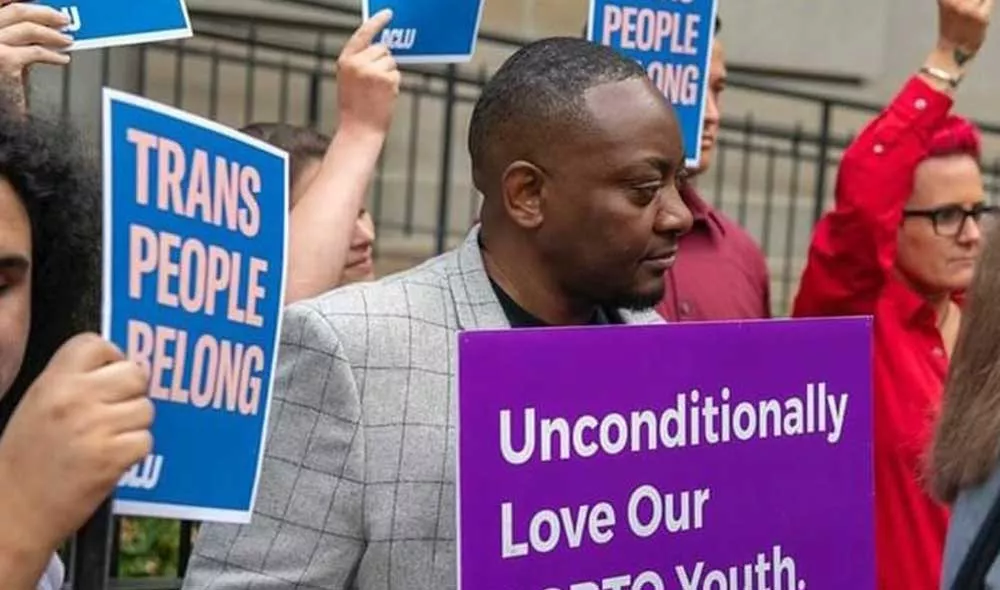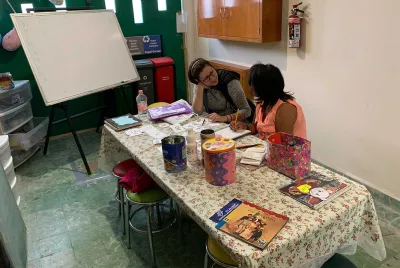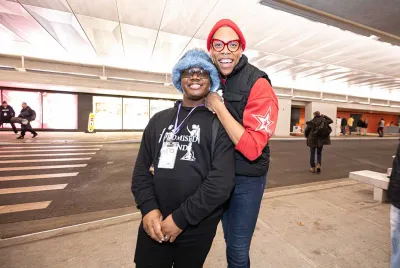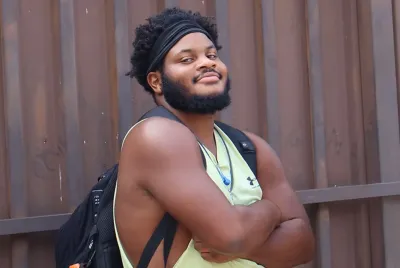Former Cov Resident Champions Unhoused and LGBTQ+ Youth

On the heels of Mental Health Awareness Month in May and in the midst of recognizing Pride Month, Iden Campbell’s work to further the Covenant House mission and his personal story are important to share.
Originally from Brooklyn, Iden is a former Covenant House resident. He has worked many years in the nonprofit space and built upon his experiences as a young person facing homelessness to help found two nonprofit organizations.
“One of the nonprofits split into three and the other one is still running. It’s 17 years old now.”
Iden spent most of his adulthood “living androgynous,” he said, “as neither male or female, dressing and behaving as genderless as possible,” until he read a 2007 Newsweek article entitled; “The Mystery of Gender.”
“The article gave me a new outlook on living. After having been depressed and suicidal since third grade, I finally felt hope that my life could now be less painful, living as the gender I have always felt inside.”
Iden’s story about his journey to our New York location is an evocative one.
“One night, I was sleeping on the number 7 train, and it went into 42nd Street and was stopped for a while. This lady police officer got on the train and she saw me in the corner, nodding off, ‘cause that’s where I slept,” Iden recalled.
He said the number 7 train was the warmest train on which to sleep, “even though it went outside, up into Flushing.” He remembers the heat that came from beneath the seats, especially during cold New York winters.
“And so she saw me and she woke me up and asked me what I was doing on the train. And I told her. I was sleeping,” said Iden.
The officer noticed the high school class ring Iden was wearing. It was just after graduation.
“And so she says, ‘Did you graduate from high school?’ And I told her, ‘Yeah, I just graduated.’ And she was like, ‘Well, turn your ring over so nobody will see it because somebody might steal it from you while you are asleep.’”
The officer followed up with questions about Iden’s family, what his plans were, so he revealed that he had now aged out of foster care and was experiencing homelessness.
“She was like, ‘Well, have you ever heard of Covenant House?’ And I told her yeah. And she said, ‘Well, I want you to go over there, and they can help you.’ So she told me the address, she wrote it down for me, and she gave me $20.” Iden remembers the officer’s specific instructions to go straight there the next morning.
“Are you gonna go?” the officer asked. Iden assured her he would. The officer told him to be careful and then left the train.
“Of course, y’know, when you get ready to do something, the devil always throws some roadblocks in your way, right?” said Iden.
It was the late 80s, the height of the crack-cocaine epidemic, and Iden was stopped along the way to Covenant House by a man in a wheelchair asking to be wheeled into an alley to procure drugs, which he used in front of Iden, then asked to be pushed back to the street. The man gave Iden some money, before Iden proceeded to Covenant House New York.
It’s experiences like these that shaped Iden’s interests and knowledge today. He is passionate about many things including mental health, addiction, gender, sexuality and use of preferred pronouns, outreach to youth of color, HIV outreach, suicide prevention and trauma-informed care. He is skilled in staff and youth training on all of these topics, and more.
He credits Covenant House with reconnecting him with family. From CHNY, he was reunited with his mother in North Carolina, where he finished junior college and returned to New York City, then to Washington D.C., then Seattle, Portland, and Vancouver.
His current focus is suicide prevention.
“I started thinking about suicide as a student at PS 148 in Brooklyn. My teacher, Ms. Rosen, was able to get me support at Bellevue,” Iden shared. I have experienced suicidality for much of my adult life which has led to me focusing on suicide prevention.”
Now he hosts national summits for suicide prevention, and is creating a product for “postvention,” which he said is what happens after the attempt.
“It’s a comprehensive program to help people as they work on rebuilding their lives after a suicide attempt,” said Iden. “The program will be comprised of a curriculum and workbook, website, app, support group guidance, and culturally-specific products to celebrate life lived after a suicide attempt.”
This project is informed by Iden’s lived experiences, he said.
At Covenant House, we recognize the important contributions of our alumni community and we thank Iden for his commitment to affirming lives.
You might also like...
All storiesShelter Is Only the Beginning
From crisis to care: Find out what it's like when a young person enters our doors.


